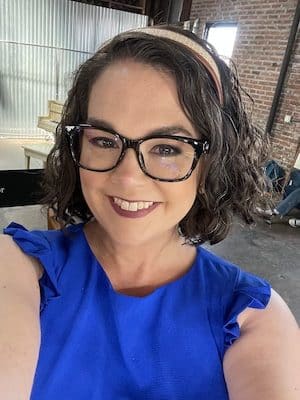The small but friendly community of First United Church of Christ occupies one of the oldest buildings in West, Texas.
The church relies on supply preachers from nearby seminaries, including Truett Theological Seminary, Brite Divinity School and Southwestern Theological Seminary. I preached there on Easter Sunday of this year.
Sitting in my living room on April 17, two weeks after Easter, I received news of the explosion in West by way of a text message from a friend. I turned on the local news and could not believe my eyes.
What began as a large fire devastated this small town when the fertilizer plant exploded, destroying dozens of houses and buildings nearby, including the junior high school and West Rest Haven Nursing Home.
First responders hurried to the scene from communities near and far. Medical personnel rushed to West, and triage was set up at the high school football stadium.
Fearing a second explosion, volunteers frantically transported as many as possible across town to the community center, and ambulances transported the critically injured to area hospitals.
I was able to reach a member of First UCC, who let me know that everyone in the congregation was all right.
More responders came to West than could be used the night of the explosion. The next day, blood centers across the greater Waco area had lines wrapped all the way around their buildings.
Businesses all over Waco collected clothing and monetary donations, and restaurants donated food. Billboards popped up across town with messages of prayer and support.
Area denominational offices distributed updates from West’s pastors about the condition of the community’s churches. Several church buildings were damaged, but the church – the community of God – was strong.
My contact from First UCC called me late in the week about coming that Sunday to help with a breakfast. Since West’s Brethren church had been severely damaged, First UCC invited the Brethren congregation to worship with them.
To better accommodate the blended congregation, they chose to host a breakfast at 9 a.m. and push worship back to 10:15 a.m. Several others from Truett Seminary, who had served as guest preachers at the church, as well as members of a large Baptist church in Waco, also contributed toward the breakfast.
We prepared a children’s Sunday school lesson and craft focused on God’s faithfulness and how to turn grief into prayer.
As the church gathered that Sunday morning, two congregations in one room, I was humbled by overwhelming love.
The Brethren pastor gave a short lesson during the breakfast and then asked one man in particular for an update.
This man must have been part of city leadership because he was extremely knowledgeable about the barricade. He explained that the barricade had three tiers, ranking from the least damaged (one) to the most damaged (three).
Those with homes in tier one could access their homes between 7 a.m. and 7 p.m., but utilities such as water and electricity were not reliable. Those with homes in tier two were likely to have access to their homes within the next week, but those in tier three would be displaced for some time.
The Brethren church building was in tier two. Can you imagine a natural disaster where you can’t even see your home or church to know whether it is OK or not? I could see on several faces the difficulty of not knowing.
The Brethren pastor opened the floor for testimonies. Stories of kindness and gratitude poured forth.
People named friends and relatives who were injured or who had lost their homes. Parents of teenagers shared the devastation of children who had lost their school. Others gave updates of those in the nursing homes and where they had been relocated.
The theme of hope emerged time and again in the testimonies of those gathered, hope from knowing that people were praying for West, the comfort of feeling God’s hand on them and the support of people of faith around the world.
People named specific churches from out of town that had expressed prayer support. Others read encouragements from the newspaper.
The sign language interpreter from the Brethren church broke into tears as she read a statement of support for West from someone in Boston, where an explosion had injured many earlier that week.
Even as Boston was recovering from tragedy, people there were also praying for West.
I witnessed that morning two small country churches, leaning on one another with grace and understanding. They seemed to grasp that the Church is bigger than any single congregation, and that the most important thing any follower of Christ can do is love others.
During the worship service, a little girl looked around anxiously. A man entered who had obviously been working as a first responder. This little girl ran to him, crying “Daddy!”
Her daddy had been working onsite basically nonstop since the blast, but had promised his daughter he would come to church. He scooped her up in his strong arms, and time froze as this father’s fulfilled promise reminded us of God’s fulfilled promises.
As we gathered for our joint worship service – United Church of Christ, Brethren, and a Baptist preacher – an energy filled the room, assuring us that no matter what had happened or will happen, God is always faithful.
Courtney Pace Lyons is a doctoral candidate and teaching fellow in the Department of Religion at Baylor University. A longer version of this column first appeared on The Young Clergy Women Project’s online publication, Fidelia’s Sisters, and is used with permission.
Prathia Hall Scholar in Residence of Social Justice History for Equity for Women in the Church and a visiting faculty at Rhodes College. Pace is an ordained minister, researching social justice movements in American religion, particularly race and gender. She is the author of Freedom Faith: The Womanist Vision of Prathia Hall (2019), Beyond Eden: The Collected Sermons and Essays of Prathia Hall (2022).

